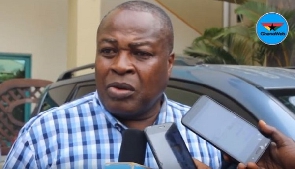?Tono, Vea, Pwalugu projects obsolete
Investigations conducted in the Upper East Region and Burkina Faso by The Statesman indicate that the management of the Pwalugu Tomato Factory have been compelled to go into Burkina Faso to purchase the bulk of raw tomato needed to keep the factory in good business, and make it competitive on the export market, owing to the current antiquated farming practices in the Tono (Navrongo), Vea (Bolgatanga) and Pwalugu irrigation sites, which offer low yield and lower quality tomatoes.
Our sources in Burkina Faso intimated that the largely agrarian Burkinabe economy was further going to receive from the tomato factory a shot in the arm. Its farmers are to benefit from an arrangement that would ensure the injection of huge funds into production of the right quantity of raw material. Tomato supplies were therefore expected to be regular and uninterrupted, and larger acreage developed for harvesting when the project takes off in December, this year.
That means more cash oiling the Burkinabe economy, apart from the ?2 billion Burkinabe farmers ?reap? daily from Ghanaian traders who enter the neighbouring country at the peak of the tomato season to buy tomatoes and distribute on Ghanaian markets countrywide.
Lamentably, other sources of supply the factory may rely on, including farm-gates in Derma, Agogo in Koforidua and Asante-Akim, Tuobodom, Afrantcho, Kasoa, Ada and other communities in the southern parts of the country, are not in the position to adequately supply tomatoes to the factory, also because the appropriate farming practices and technology needed to record those levels of supply have not been put in place.
Our investigations further established that, though the Pwalugu Tomato Factory will be providing hundreds of thousands of jobs to youth in the Upper East, the plan to assist farmers in the neighbouring country rather than those nearer in the region to expand, has the potential of putting the final nail in the coffin of the ailing agricultural industry, beset with a serious marketing problem as a result of the low shelf life of varieties grown there and lower yields.
Scouts from the tomato factory were in Burkina Faso when the paper left town last Friday, talking with leaders of farmers? associations in the neighbouring country and Burkinabe state officials on the way forward for the factory and farmers there. Credits for farmers, technology and the introduction of higher and more exotic yields were discussed, according to our sources in Burkina Faso.
Though the full details were not immediately known, there was every indication that, for now, more than eighty percent of the raw materials needed to feed the Pwalugu Tomato Factory would be coming from Burkinabe farm-gates, just because the irrigation sites in the Upper East, initiated by the late General I K Acheampong administration, have failed to see a reorientation and improvement of the initial technology to match acceptable quality and production levels, the forces of supply and demand, targets as well as markets.
Youth from Navrongo, Bolgatanga and other communities in the Upper East earn a living around that time of the year picking, sorting and loading tomatoes into crates and on vehicles on the project sites in Upper East and Burkina Faso. But whilst the season runs only for a month for them to earn a living in their own backyard, they make it better in Burkina Faso, because the season over there runs five to six months, supplying an average 50 trucks from Ghana per day. The motivation, therefore among youth in the region to want to farm is not there, because as farm hands and, sometimes, interpreters on Burkinabe farm-gates, they make better money than their own kith and kin farmers, who are aging, and with little hope that they can find replacement in terms of labour on their farm when they retire. Not only that, shorter harvest periods mean less cash and inability to settle loans owed non-governmental organisations and financial institutions.
A farmer, Grace, told The Statesman that loans they took from the International Fund for Agricultural Development was still outstanding because the soil was not producing the desired yield, apart from the nagging problem of pests that attack the plants periodically.
Between December and May, this year alone, Ghana lost ?2 billion daily in sales to farmers from Burkina Faso. Tomatoes from the Vea, Pwalugu and Tono sites lasted only a month on the market, with low productivity and sales in terms of volume, whilst that from Burkina lasted five months in view of the superior technology introduced there ten years ago by Taiwanese agricultural consultants. Ten years ago, too, Burkina Faso nationals bought their supply of tomatoes from Ghana. Today, however, they are among the leading agricultural economies in the sub-region, streets ahead in the production of high-yielding, longer shelf-life varieties.
Strangely, farmers on the farming sites in Tono, Vea and Pwalugu did not appear to know about the deal regarding supply of tomatoes to the factory from Burkinabe farm-gates or the role they were to play in the supply of tomatoes to feed their own tomato factory.
?The factory starts production in December?and we know it will create jobs for our youth?we are happy about that?But this thing you talk about?we have to check it properly with the authorities?? one elderly farmer told the paper. They do not also have the faintest idea regarding any moves by any agency of government, in the short run, to revolutionise their farming practices for the mutual benefit of government, farmers on the project site, traders down south and consumers countrywide.
The three Northern regions rank highest in terms of poverty in the country, though they possess massive arable lands and enjoy the same climactic conditions as the Burkinabes, who are currently among the leaders in vegetable production in the sub-region.
Click to view details



Business News of Monday, 5 June 2006
Source: Statesman
















